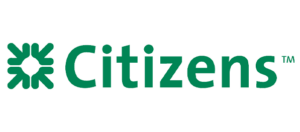Buying a House? First, Put Your Financial House in Order
You know you want to own a home one day, but how do you get there? One of the first steps you can take that will also bring long-term benefits is taking charge of your finances. Besides getting you ready to make that important purchase, it can give you confidence, show you what is affordable, and make it easier to pay your bills while you’re renting. Here are some tips you can follow to help boost your bank account and get ready to buy a home.
Commit to a budget. Creating a spending and savings plan helps you see how much money you’re taking in versus how much you’re spending on bills, food, and other expenses. As a general rule of thumb, follow the spending guidelines below:
| Category | % of your net budget spent on that category |
| Housing | 20-30% |
| Utilities | 4-7% |
| Food | 15-20% |
| Transportation | 6-20% |
| Medical | 2-8% |
| Clothing | 2-4% |
| Saving/Investing | 5-10% |
| Debt Payment | 15-20% |
| Misc. | 5-10% |
| Net Income (Total) | 100% |
If you are spending more than you bring in, identify discretionary spending where you can cut back. When you spend less than you earn, use those extra earnings to save for that house.
Write down everything you spend. After you have committed to a budget, writing down your spending habits can help you see how well you are sticking to it. Keep receipts and make note of everything you spend each month. You may be surprised to see where your money goes!
Bank the difference between your rent and a mortgage payment. Use a mortgage calculator to get an idea of how much a mortgage may actually cost. If you want to see what it’s like to pay a mortgage, set aside the difference between your current rent payment and that “mortgage payment” in a savings account. This will help you build up savings quickly while getting you ready for the extra expenses that ownership can bring.
Check your credit report. You are able to get one free credit report from each of the three credit reporting agencies – Experian, TransUnion, and Equifax – each year. Ask for copies of your credit reports here and check them for accuracy. Remember, it is your responsibility to make sure they are accurate and to report any inaccuracies you may find. This will help put you in the best position possible when you are seeking approval for a mortgage, and it can help you catch identity theft.
Seek out budgeting resources. If you’re feeling overwhelmed getting your finances in order, you don’t have to go it alone. There are HUD-approved Housing Counseling agencies across the state that can help you create a plan to improve your credit and become financially ready to own a home. You can attend a free seminar or workshop and receive free one-on-one coaching afterwards to help you develop your personalized budgeting plan. You can also check out your local library and search for online resources that offer tips about how to build a budget and stick to it.
Have you followed any of these strategies to save for a house? Do you have money-saving tips of your own? Share them in the comments!
New Hampshire Housing is your statewide housing resource! Through a broad range of rental and homeownership programs, we promote, finance and support affordable housing for Granite State residents. Since our inception, we have helped more than 40,000 families purchase their own homes and have financed the creation of more than 14,500 units of rental housing for individuals and families. More information about our homeownership and rental programs can be found on our websites at www.nhhfa.org and www.GoNewHampshireHousing.com.
Amanda Flitter is the Communications Administrator and Web Content Manager for New Hampshire Housing. You can follow New Hampshire Housing at http://newhampshirehousingheadlines.org/.











